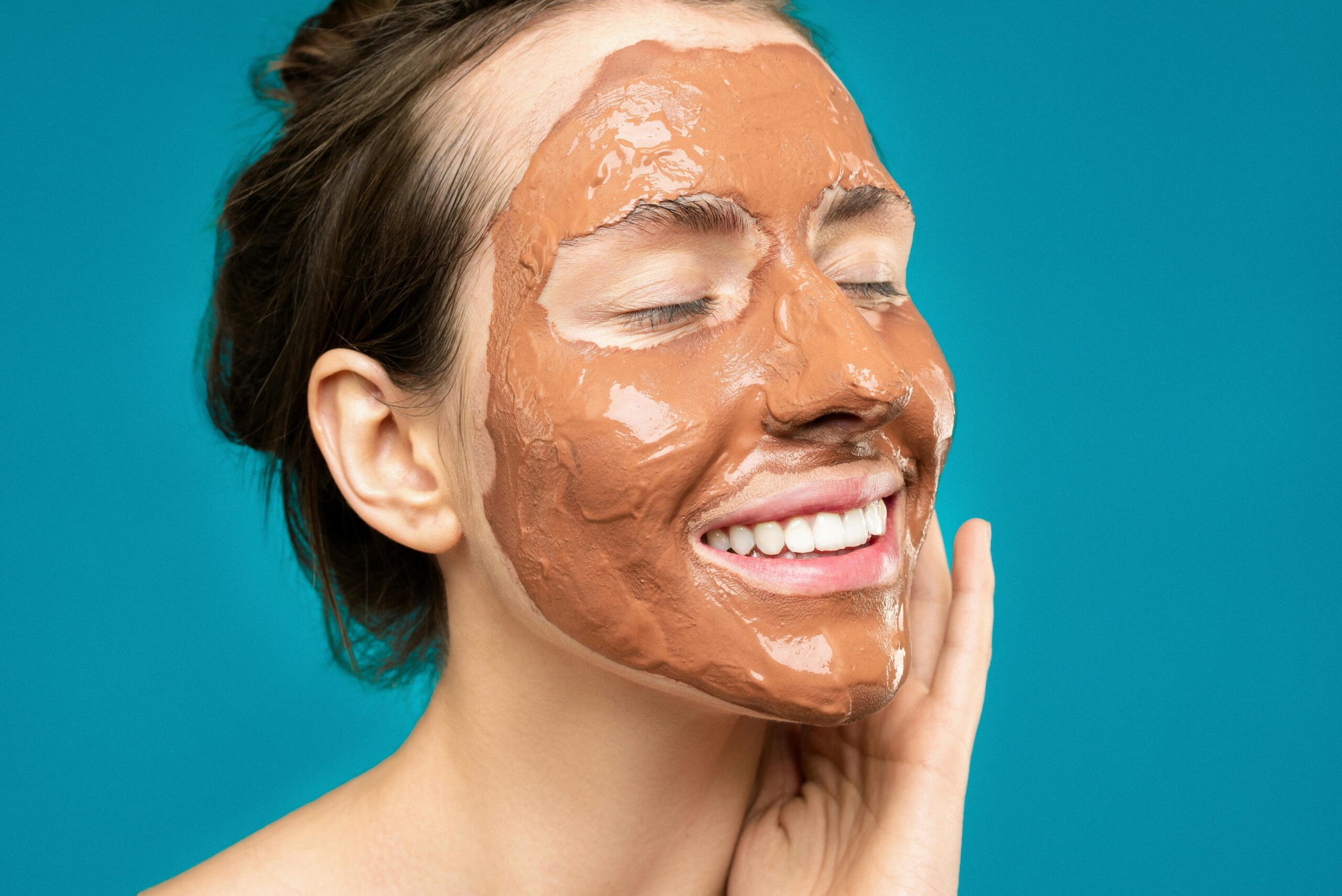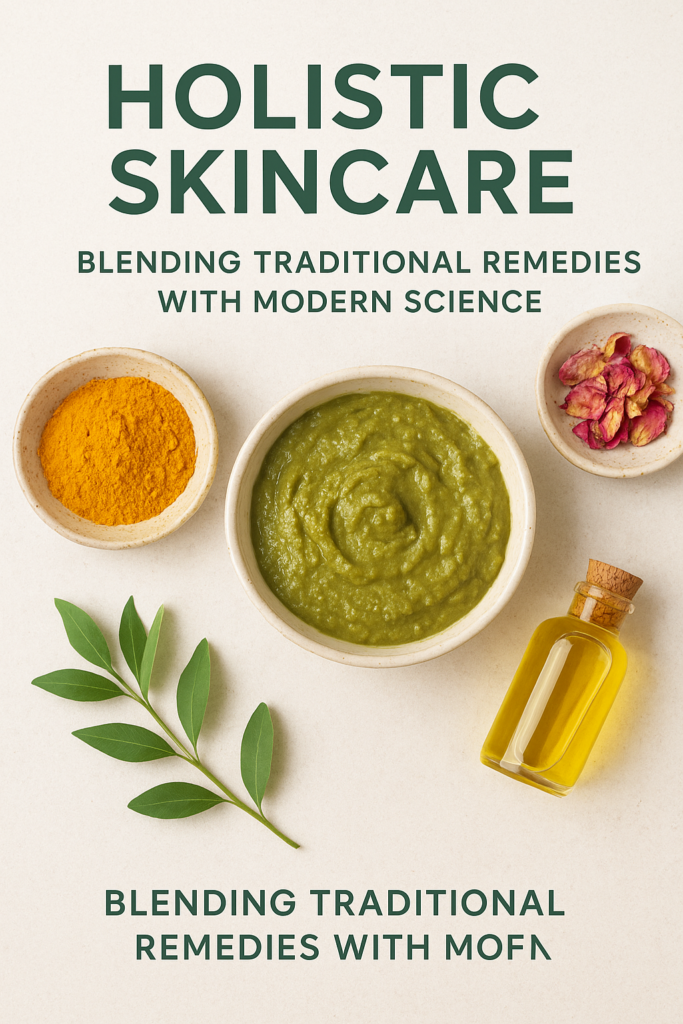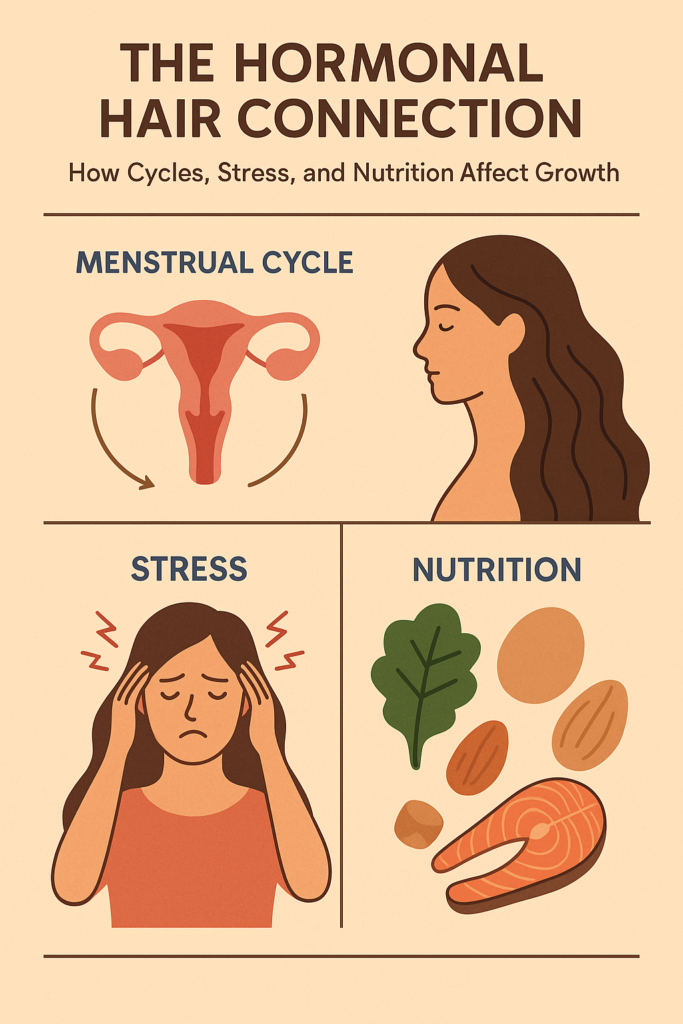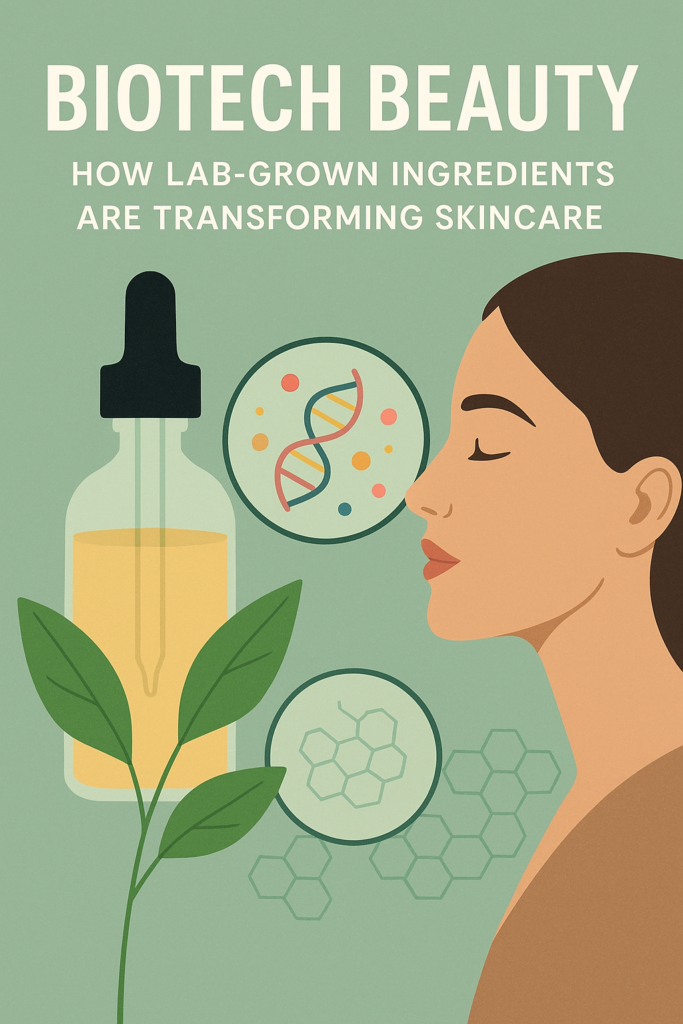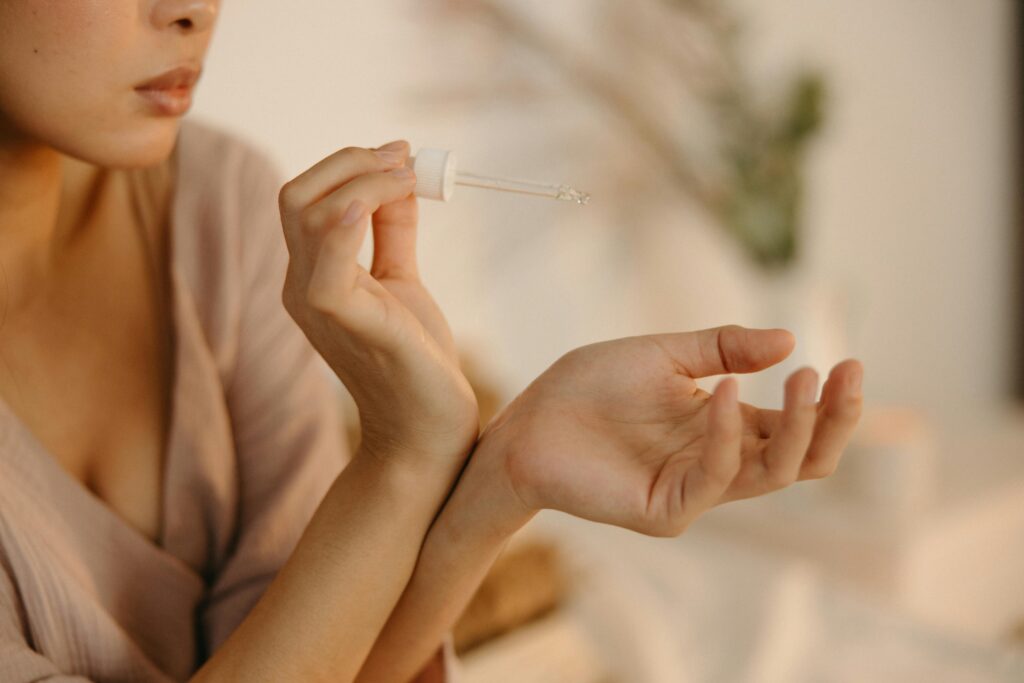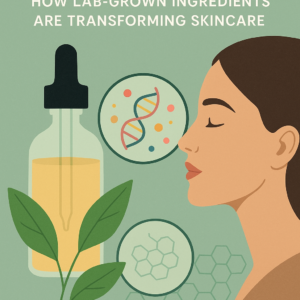The Power of Probiotic Skincare – Balancing the Skin Microbiome Naturally
The term “microbiome” has rapidly become a buzzword in health and wellness circles, and for good reason. Just like your gut, your skin is home to billions of microorganisms that play a vital role in keeping it balanced, healthy, and resilient. Enter probiotic skincare—a science-backed approach that supports your skin’s natural flora for a clearer, calmer, and more radiant complexion. As the beauty industry pivots toward gentler, more effective solutions, probiotic skincare is emerging as a game-changer.
In this in-depth article, we explore what the skin microbiome really is, how probiotics help restore and maintain its equilibrium, and which natural skincare strategies work best for achieving harmony between your skin and its microbial allies.
1. What Is the Skin Microbiome?
Your skin isn’t just a passive barrier—it’s an ecosystem. The skin microbiome consists of:
- Bacteria (both good and potentially harmful)
- Fungi
- Viruses
- Mites
This microbial community plays an essential role in:
- Regulating inflammation
- Defending against pathogens
- Maintaining pH balance
- Hydrating and protecting the skin barrier
When this balance is disrupted—through over-cleansing, antibiotic use, or environmental stressors—it can lead to acne, eczema, rosacea, and premature aging.
2. What Are Probiotics in Skincare?
Probiotics are live microorganisms that, when applied topically, can benefit your skin by:
- Enhancing the skin barrier
- Calming inflammation
- Neutralizing environmental damage
- Reducing the frequency of breakouts and flare-ups
Topical probiotics are different from oral supplements. They deliver beneficial strains directly to the skin to influence its local ecosystem.
Common probiotic strains in skincare include:
- Lactobacillus
- Bifidobacterium
- Streptococcus thermophilus
- Fermented yeast extracts like Saccharomyces
3. Prebiotics vs. Probiotics vs. Postbiotics
To fully understand probiotic skincare, we must differentiate:
- Prebiotics: Non-living ingredients that feed beneficial bacteria (e.g., inulin, oat extract)
- Probiotics: Live microorganisms applied to the skin
- Postbiotics: Byproducts of probiotic fermentation that offer anti-inflammatory and barrier-strengthening benefits
Using a combination of all three offers synergistic benefits for the skin microbiome.
4. The Benefits of Probiotic Skincare
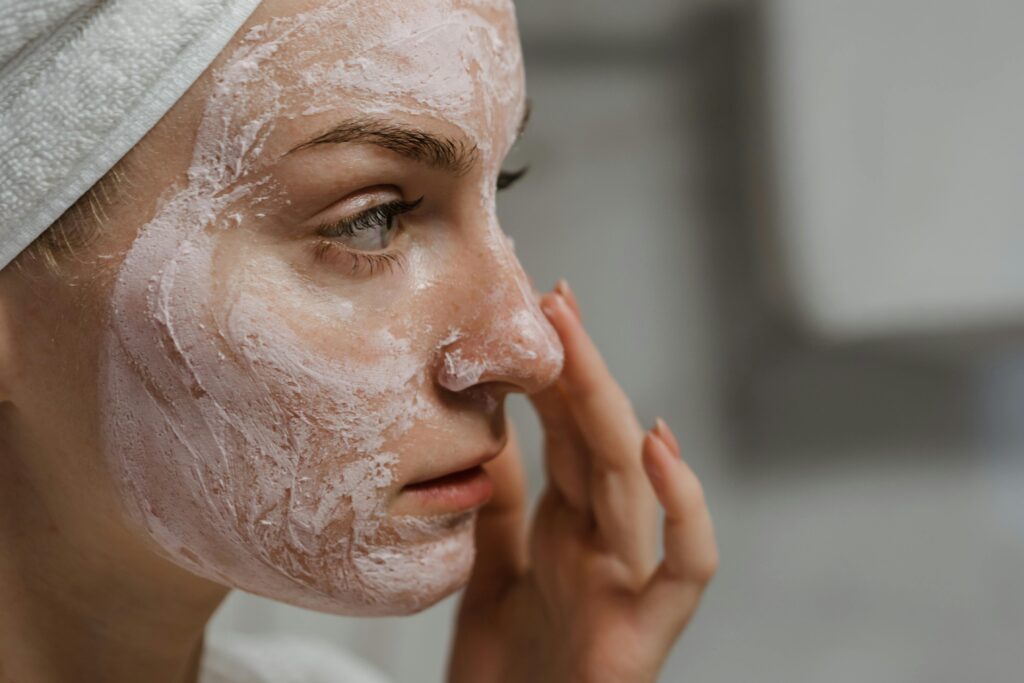
Studies show that probiotic skincare can:
- Reduce Acne: By outcompeting harmful bacteria and calming inflammation
- Soothe Rosacea and Eczema: By restoring microbial balance and reducing flare-ups
- Improve Hydration: By reinforcing the skin barrier and preventing transepidermal water loss
- Boost Collagen Production: Through antioxidant and anti-inflammatory mechanisms
- Enhance Radiance: By improving cellular turnover and reducing oxidative stress
5. Scientific Research Supporting Probiotic Skincare
- A 2014 study in the Journal of Cosmetic Science showed that topical Lactobacillus reduced acne lesions in participants over 8 weeks.
- The International Journal of Women’s Dermatology in 2019 published findings on probiotic creams reducing skin sensitivity in rosacea patients.
- Korean research on fermented ingredients in K-beauty found significant improvement in hydration and wrinkle depth.
Dermatologists like Dr. Whitney Bowe and Dr. Elsa Jungman advocate for microbiome-safe skincare as a new frontier in dermatology.
6. Signs Your Skin Microbiome Is Unbalanced
- Frequent breakouts or sensitivity
- Unusual dryness or oiliness
- Redness and inflammation
- Skin that reacts to everything
- Slow healing or flare-ups
These signs suggest a need to restore microbial harmony with targeted skincare.
7. Natural Ways to Support Your Skin Microbiome
Cleanse Gently
Use sulfate-free, pH-balanced cleansers to avoid stripping your skin.
Avoid Over-Exfoliation
Too much exfoliation removes not only dead skin but also beneficial bacteria.
Hydrate Deeply
Dehydrated skin compromises the microbiome. Use humectants like glycerin, hyaluronic acid, and aloe vera.
Eat Probiotic-Rich Foods
What you put inside your body reflects on your skin. Add:
- Yogurt
- Kefir
- Kimchi
- Sauerkraut
- Miso
Avoid Antibacterial Overuse
Antibacterial soaps and harsh toners can wipe out your good bacteria.
8. Building a Probiotic Skincare Routine
Morning:
- Gentle, microbiome-friendly cleanser
- Hydrating toner with prebiotics
- Probiotic serum or essence
- Barrier-repair moisturizer
- Broad-spectrum SPF (look for one with antioxidants)
Evening:
- Double cleanse (oil-based followed by gentle cleanser)
- Hydrating mist with thermal water or fermented ingredients
- Probiotic overnight mask or cream
- Optional: Bakuchiol or niacinamide for targeted treatment
9. Best Probiotic Skincare Products to Try
| Product Type | Recommended Product |
|---|---|
| Cleanser | Gallinée Foaming Facial Cleanser |
| Serum | TULA Probiotic Skin Perfecting Serum |
| Moisturizer | Aurelia Probiotic Skincare Cell Revitalize Day Moisturizer |
| Mask | Mother Dirt AO+ Restorative Mist |
| Toner | Glow Recipe Watermelon Glow PHA + BHA Toner (with fermented cactus water) |
10. The Future of Microbiome Skincare
Expect to see:
- DNA-personalized probiotic skincare
- Live bacteria creams stored in mini-fridges
- AI-powered skin microbiome analysis apps
- Synbiotic products (combining pre-, pro-, and postbiotics)
Beauty brands like Gallinée, TULA, Mother Dirt, and La Roche-Posay are leading this innovation wave.
Final Thoughts
Your skin’s ecosystem is delicate, dynamic, and deserving of thoughtful care. Probiotic skincare doesn’t just treat the symptoms—it works with your biology to build stronger, more resilient skin from the inside out. As research into the skin microbiome expands, so does our ability to support beauty in the most holistic way possible.
Let your skin flourish by giving its microbiome the love and respect it deserves. Because true skin health starts with balance—and probiotics are here to help you achieve it.
Next Up: The gut-skin connection and how your digestion affects your complexion.
Holistic Skincare
Holistic Skincare – Blending Traditional Remedies with Modern Science In the ever-evolving world of beauty,…
A Conexão Capilar Hormonal
The Hormonal Hair Connection – How Cycles, Stress, and Nutrition Affect Growth Hair is often…
Biotech Beauty – How Lab-Grown Ingredients Are Transforming Skincare
The Rise of Biotech in the Beauty World In recent years, the beauty industry has…
Natural Fragrance Oils vs. Synthetic Perfumes
Natural Fragrance Oils vs. Synthetic Perfumes – What’s Better for Your Skin? Perfume is often…
Herbal Face Steaming Rituals from Around the World
Herbal Face Steaming Rituals from Around the World – Detox, Relax, Glow In today’s fast-paced,…
The Crystal Skincare Trend – Beauty Tools Charged with Energy
In the ever-evolving world of beauty and wellness, a fascinating trend is capturing the attention…
Forest Beauty
Forest Beauty – How Nature-Based Rituals Like Shinrin-Yoku Enhance Skin and Mood In an age…
DIY Rice Water and Fermented Rinses
DIY Rice Water and Fermented Rinses – Do They Really Work for Hair Strengthening? In…
Caffeine for Hair Growth
Caffeine for Hair Growth – What the Science Says and How to Use It In…
Hair Loss After COVID
Hair Loss After COVID – Understanding Telogen Effluvium and How to Treat It Hair loss…
The Rise of Ayurvedic Hair Care in the U.S.
The Rise of Ayurvedic Hair Care in the U.S. – Herbs and Rituals for Stronger…
Scalp Health Is the New Skincare
Scalp Health Is the New Skincare – Treatments That Start at the Root In the…
The Retinol Revolution
The Retinol Revolution – Gentle Alternatives for Sensitive Skin Without Sacrificing Results Retinol has long…
The Power of Probiotic Skincare
The Power of Probiotic Skincare – Balancing the Skin Microbiome Naturally The term “microbiome” has…
Blue Light and Your Skin
Blue Light and Your Skin – The Hidden Damage of Screen Exposure and How to…
Slugging 2.0
Slugging 2.0 – Advanced K-Beauty Hydration Technique That’s Taking Over TikTok Beyond Basic Slugging In…
The Rise of Skin Cycling
The Rise of Skin Cycling – How to Build a Rotating Skincare Routine for Maximum…
Reflexology and Its Effects on Health and Beauty
Healing Through the Feet – Reflexology and Its Effects on Health and Beauty In today’s…
Natural Remedies for Skin Spots
Natural Remedies for Skin Spots – Little-Known Alternatives That Really Work Skin spots, also known…
Therapeutic Tattoos
Therapeutic Tattoos – How Tattoos Can Help Boost Self-Esteem for People with Scars Scars tell…
Functional Nutrition for Skin and Hair
Functional Nutrition for Skin and Hair – How Specific Vitamins and Minerals Impact Beauty Your…
Natural Hair Smoothing
Natural Hair Smoothing – Chemical-Free Alternatives for Sleek, Straight Hair For those seeking sleek, straight…
Skin Flooding
Skin Flooding – The New Intensive Hydration Technique for Radiant Skin The skincare world is…
Sunbathing and Collagen Production
Sunbathing and Collagen Production – How to Balance Sun Exposure Without Damaging Your Skin Sunlight…
